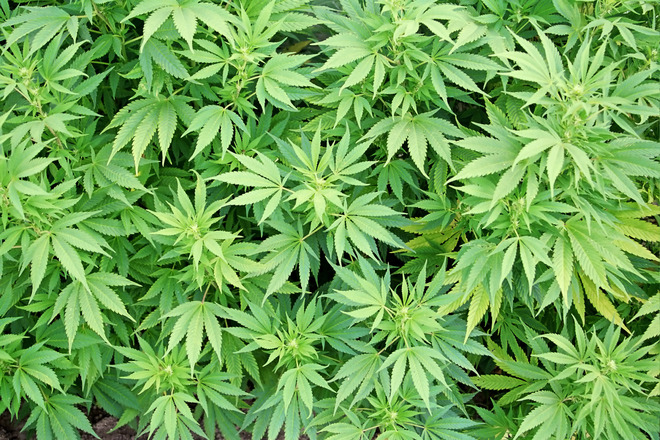JEFFERSON CITY, Mo. — The road to Missourians accessing medical marijuana for treatment of serious ailments has only just begun with the passage of a constitutional amendment. The journey from voter approval to operational dispensaries is being estimated to take a year or more.
Now, it will be up to the Department of Health and Senior Services to implement the will of voters and promulgate rules.
“Implementation is always a fine line, because we want to bring relief to patients as quickly as possible but we also want to give the Missouri Department of Health the time to do this right and make sure we have an effective and efficient program,” said Jack Cardetti, the spokesperson Missouri Medical Cannabis Trade Association (MoCannTrade).
There were two other questions on the ballot that would have legalized medical marijuana but both of the measures got rejected — which potential is keeping the issue from the courts. Amendment 3, backed by Find the Cures, only garnered 31 percent of the vote and Proposition C, backed by Missourians for Patient Care, gained 43 percent approval.
Amendment 2, which was the leading vote-getter on the midterm ballot, sets out specific deadlines for DHSS in terms of implementing medical marijuana legalization and sets up what ailments qualify under the measure.
Medical cannabis in Missouri is set to be highly regulated and the Show-Me State does have other states to learn from. Since more than 30 states have approved medical marijuana — some with highly-regulated industries — Missouri has examples to draw from.
Cresco Labs is a business that operates in several highly-regulated medical marijuana markets. They have a presence in Illinois, Pennsylvania, Massachusetts, and most recently expanded operations to Ohio.
Charles Bachtell, co-founder and CEO of Cresco Labs, noted that when he initially thought of marijuana, he pictured places like Colorado or Venus Beach, California, where marijuana was sold in glass jars, it was weighed in front of the customer and put in a bag for folks to walk out with.
“Highly regulated cannabis is very different. It is indoor commercial agriculture then it becomes chemistry and…processing and then it becomes product manufacturing and formulation. Then it is packaging and logistics and all the things that go into very traditional industries, but just centered around medical cannabis,” said Bachtell.
When it comes to cultivating marijuana, there are a variety of different strains that have a different effect. Some are uplifting and stimulating, others are neutral and calming, while others have a sedative effect and are great for significant pain relief.
The trick Bachtell noted is getting every plant of the same strain to look, feel, and act the same. The goal is for the customer to have a consistent, repeatable experience with the product, just like with Tylenol or any other medication.
This is where processing plays an important role in medical cannabis. While there are folks who will prefer the flower whole, there will be patients looking to use medical marijuana without smoking or rolling a joint.
During the processing process, the oils can be extracted out of the raw flower. Those oils can be used to make a variety of products from edibles to pills, from sprays to lotions. Bachtell notes those products are more akin to traditional forms of medicine and are dose-able.
The law passed by Missouri voters gives DHSS a lot of leeway when creating the regulatory environment for medical cannabis. It is the specifics of who, where, when, and how folks interested in the industry are looking for.
“We are confident the Department of Health and Senior Services will do its due diligence and meet the law’s requirements in a timely manner. The best thing patients can do right now is begin to have a conversation with their state-licensed physician about whether medical marijuana is a potential treatment option so that come this spring they can begin the certification and application process for a patient identification card,” said Cardetti.
Laid out in the law
The law went into effect on December 6, 2018, however, it’s still a long road ahead before Missourians will be able to access medical marijuana.
On January 5, 2019, DHSS will begin accepting non-refundable application fees for dispensaries and facilities. Paying the fee early is not a guarantee that application — that DHSS is still in the works of developing — will be approved.
On June 4, 2019, applications and instructions will become available from DHSS. The department will begin accepting the applications for identification cards 30 days later on July 4, 2019.
DHSS will begin accepting facility applications on August 3, 2019. They have up to 150 days to approve or deny an application. The department is estimating that dispensaries will be up and running by January 2020.
Each has a fee associated with it.
Medical marijuana identification card requires a $25 fee. Cultivation facilities require a $10,000 non-refundable application fee and a $25,000 annual fee. Dispensary facilities require a $6,000 non-refundable application fee and a $10,000 annual fee. Medical marijuana-infused manufacturing facilities require a $6,000 non-refundable application fee and a $10,000 annual fee.
Those with a qualifying illness must first visit a state-licensed physician (not a nurse practitioner or physician’s assistant) to obtain a physician certification. Then they can apply for an identification card, which will either be approved or denied within 30 days.
Those seeking to use medical marijuana to treat qualifying illnesses must be 18-years-old or older. Any minor must obtain a parent signature to be afforded access to the medicine.
It is only with an identification card can a Missourian purchase medical marijuana from a state-licensed dispensary. DHSS will be able to limit the amount of marijuana a cardholder can purchase, but that limit can not be less than 4 ounces every 30 days.
Those with medical marijuana cards can grow up to six plants at one time. Primary caregivers of a person with a qualify illness can also grow up to six plants. Cultivation must be inside, in its own room, under lock and key.
Qualifying conditions:
- Cancer.
- Epilepsy.
- Glaucoma.
- Intractable migraines unresponsive to other treatment.
- A chronic medical condition that causes severe, persistent pain or persistent muscle spasms, including but not limited to those associated with multiple sclerosis, seizures, Parkinson’s disease, and Tourette’s syndrome.
- Debilitating psychiatric disorders, including, but not limited to, post-traumatic stress disorder, if diagnosed by a state licensed psychiatrist; human immunodeficiency virus or acquired immune deficiency syndrome.
- A chronic medical condition that is normally treated with a prescription medication that could lead to physical or psychological dependence, when a physician determines that medical use of marijuana could be effective in treating that condition and would serve as a safer alternative to the prescription medication.
- Any terminal illness.
- In the professional judgement of a physician, any other chronic, debilitating or other medical condition, including, but not limited to, hepatitis C, amyotrophic lateral sclerosis, inflammatory bowel disease, Crohn’s disease, Huntington’s disease, autism, neuropathies, sickle cell anemia, agitation of Alzheimer’s disease, cachexia, and wasting syndrome.

Alisha Shurr was a reporter for The Missouri Times and The Missouri Times Magazine. She joined The Missouri Times in January 2018 after working as a copy editor for her hometown newspaper in Southern Oregon. Alisha is a graduate of Kansas State University.



















